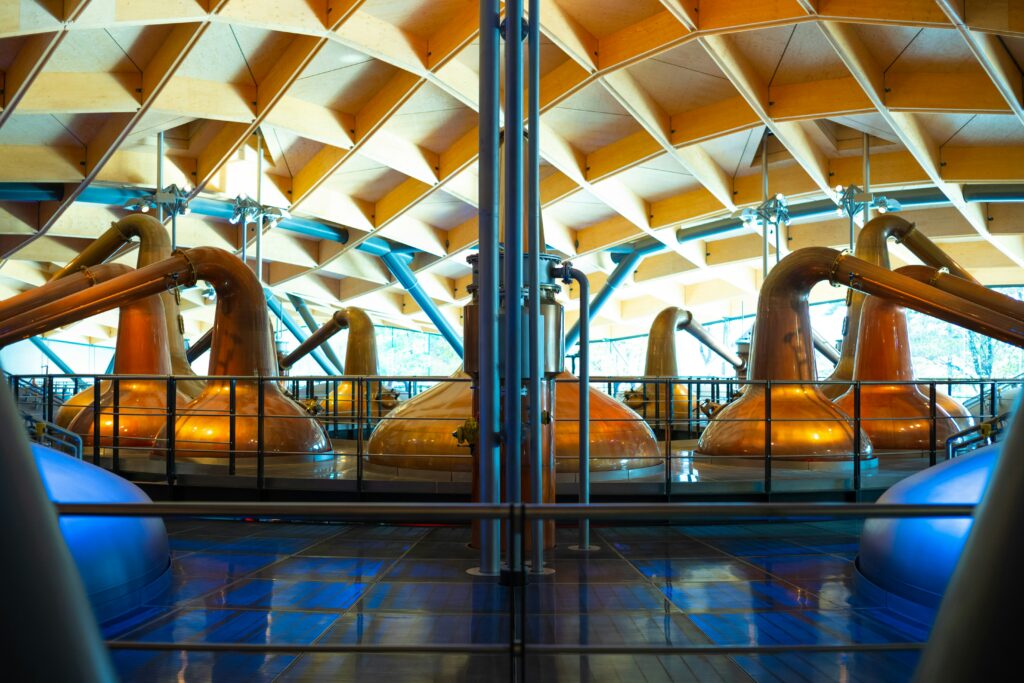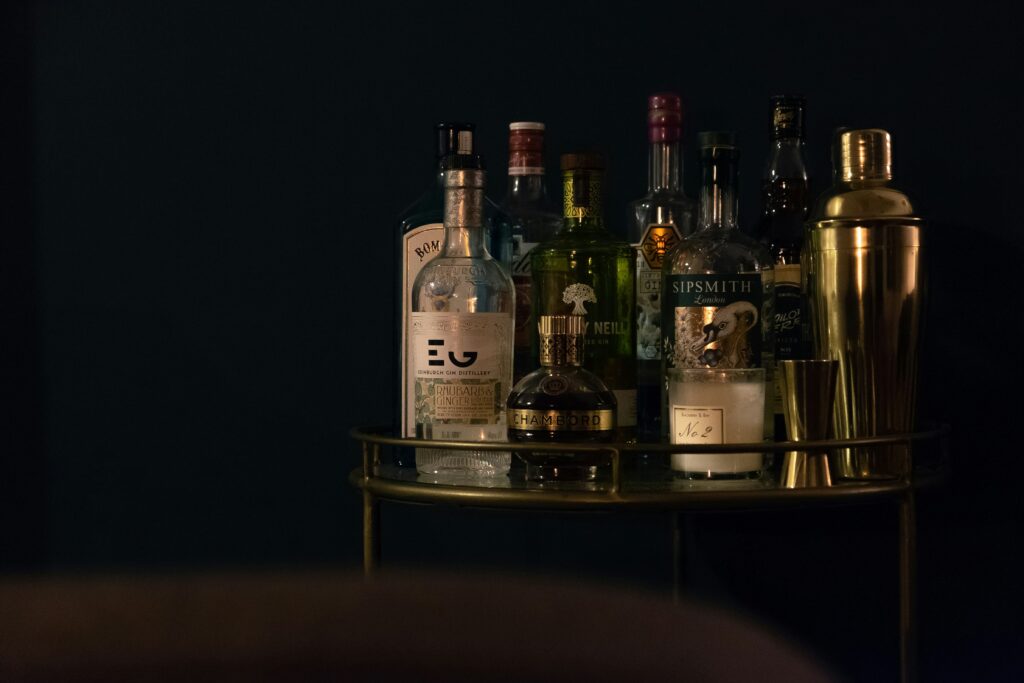What are spirits?
Distillers create spirits by using a process called distillation to turn raw materials into alcoholic beverages. Producers make spirits from various raw materials, such as fruits, grains, potatoes, molasses, and more. Depending on the base ingredients and production methods, there are several types of spirits, such as:
- Cognac: Produced by fermenting and distilling wine made exclusively from French grapes.
- Vodka: Made through the fermentation and distillation of grains, potatoes, or molasses.
- Rum: Derived from the fermentation and distillation of molasses or sugarcane juice.
- Brandy: Created by fermenting and distilling fruits or wine.
- Gin: Made by distilling grains infused with juniper berries and other aromatic herbs.
- Grappa: Obtained by distilling grape pomace from Italian or Italian Swiss vineyards.
You can enjoy spirits neat, on the rocks, or use them as a base to craft creative cocktails.
What is distillation and how does it works?
Distillation separates the components of a liquid by exploiting their differing boiling points. Distillers use this process to isolate ethanol (ethyl alcohol) from water and other substances created during alcoholic fermentation.

This process takes place in a device called a still, which has three main components:
- Boiler: The boiler heats the liquid to be distilled.
- Distillation Column: A vertical structure that separates components based on their boiling points.
- Condenser: A device that cools the vapours, returning them to liquid form.
Are spirits and liquor the same?
Many people confuse spirits with liquors, but they are two distinct categories of alcoholic beverages.
Characteristics of spirits
- Alcoholic beverages made through distillation, a process that separates ethanol from water and other substances.
- Created by extracting alcohol from fermented plant-based materials.
- Typically have a high alcohol content, often exceeding 40%.
- Examples include whisky, vodka, rum, brandy, gin, and tequila.
Characteristics of liquors
- Alcoholic beverages made by mixing alcohol (often a spirit) with sugar, flavours, and other ingredients.
- Generally sweet and flavoured with fruit, spices, herbs, flowers, or natural/artificial ingredients.
- Usually have a lower alcohol content than spirits, ranging from 15% to 30%.
- Examples include limoncello, amaretto, sambuca, and Baileys.
What are the major types of spirits worldwide?

- Gin: Made by distilling grains, primarily barley and wheat, combined with aromatic herbs and juniper berries.
- Rum (Ron or Rhum): The finest rums (agricole) are produced from sugarcane juice; alternatively, molasses can be used.
- Vodka: Derived from the fermentation and distillation of grains and potatoes.
- Whisky: Produced by distilling grains, typically malted barley. Peated whiskies are smoked using fuels like peat, wood, or coal.
- Grappa: Obtained by distilling grape pomace, the skins left after pressing the grapes.
- Calvados: Made by distilling apple cider.
- Eau-de-Vie: A general term for spirits distilled from sugary fermented liquids such as fruits, roots, tubers, or grains. Examples include:
- Grappa (Italy and Italian-speaking Switzerland)
- Krütter (Alsace, France)
- Marc (France)
- Zivania (Cyprus)
Want to know the history of cocktails? Click and read here